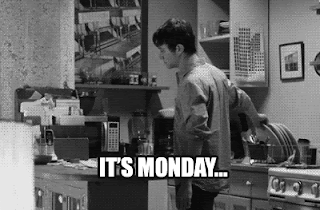I started the day early, in order to attend a couple of networking sessions and to watch soccer, in peace, on my laptop. Luckily, the team I support - Manchester United - won comfortably, which ensured that I was in an amicable mood all day.
While watching United play, I met Dr. Ferchmin, who informed me that he has been attending SFN conferences since the mid-70s. And, that's pretty neat. He must have watched, first-hand, some of the breakthrough work, particularly in the mid-90s - when neuroscience hit it's first boom.
Morning session
The official "kickoff" ceremony for SFN this year was a lecture by Judge Jed (his name is suspiciously similar to Judge Dredd)
 |
| Judge Jed? Dredd? Jredd? |
Judge Jed Rakoff discussed the relevance and somewhat uncomfortable relationship between neuroscience and the judiciary. He cited the history of eugenics, Freudian idealogies, lobotomies, etc. to underline the necessity for a skeptical look at what neuroscience tells us.
Personally, I believe that Judge Rakoff may have conflated some history that is more relevant to psychology than it is to neuroscience, but his overall point is still valid. Science is not a perfect machine. Things that we consider to be true today, may be experimentally precluded in 5 years. However, the necessity to commit to neuroscience - as a self-correcting discipline - is essential. And, I think Judge Rakoff did a commendable job of reiterating that fact. Especially, since he was sitting in a room of neuroscientists - who would not have been pleased to hear him tear down their life's work!
Lunch
Overpriced, overrated.
Afternoon session
I was excited to run in to my friends from the
On Your Mind podcast on the way to the poster session. Kathryn and Liam are two Canadian neuroscientists who started this podcast about 2 years ago. The podcast starts with a discussion about current topics in neuroscience, and ends with a discussion of an interesting neuroscience paper. They often have great guests who bring their own interests to the table, thereby increasing the list of topics covered. I highly recommend you check them out.
In between limping through poster sessions, I found the following posters worth highlighting (I apologize if I misspelled any of your names; my handwriting is horrible) ---
1. Teneka Jean-Louis (#B90) - Prostaglandins impair APP glycosylation. The Post-translational modification of APP, in my opinion, is an area of research that requires much more understanding. As, many of you are aware, APP is the protein from which A-beta is excised.
2. Caverly (#B93?) - While they did not manage to address their primary hypothesis, they found that buffering A-beta does improve memory in Alzheimer's transgenic mice. ONE FOR THE AMYLOID HYPOTHESIS!
3. Bachsetter (#B109) - Microglia in human AD brain are very different - in terms of morphology and biomarkers. This is important because we often tend to treat microglia as one homogeneous population. And, their group shows that they are not.
4. Harach (#C27) - This was my favorite poster of the day! They suggest that our gut microbiota may play a role in generating AD pathology. They are not sure of the mechanism, but, they believe that it is related to inflammation.
5. Moore (#D12) - They found that athletes with a history of concussion exhibited alterations in EEG signature. While this is not surprising, they found that these abnormalities extended longer than the recommended "Grace period" for athletes. Therefore, it's possible that when we tell athletes that they need to take 2 weeks off after a concussion, that may NOT be long enough.
6. Kitko (DP02) - Using quantum dots as a way to improve in vivo visualization. I'll admit, I didn't quite understand the details of this, but it definitely looked cool! One for the biophysicists.
7. Moses (G27) - Addicts who performed well on a memory task, seemed to have a better ability to abstain from drug relapse. A bit paradoxical to me - I always assumed that memory triggers would be a key reason behind drug relapse, and therefore, a reduction in memory recall would be beneficial to treating addiction. Goes to show - our intuition isn't always correct, and mine wasn't in this case.
What did YOU enjoy today? Let me know if you'd like for me to stop by your poster/symposia tomorrow. Enjoy your Saturday in Chicago!



